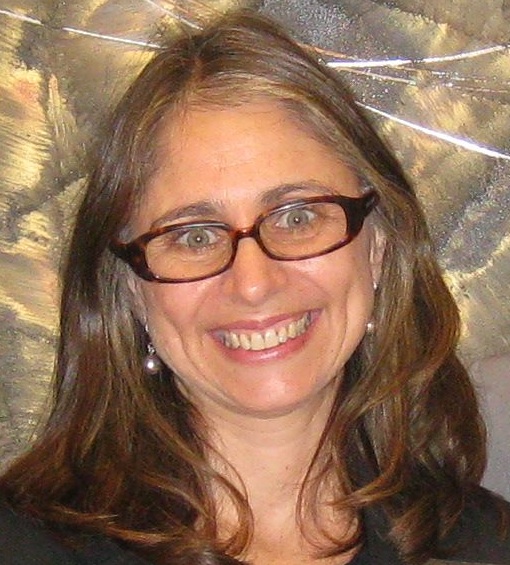3 Questions with Pamela Koch
How important is it to have Nutrition Education implemented as a vital part of all public schools today?
Today's food environment is marked by an overabundance of chips, sweet drinks, candy, and fast food -- all specifically engineered so we can't "just eat one." Food advertising is ubiquitous and ridiculously huge portions are the norm. Think about it, this is the only food environment our students have even known. Read more...
Pamela Koch is an Adjunct Assistant Professor and Project Coordinator and Executive Director of the new Laurie M. Tisch Center for Food, Education & Policy at Teachers College. She coordinates numerous research, education, and policy activities related to Nutrition Education. She is the lead author on the three Linking Food and the Environment (LiFE) curriculum series books: Growing Food: Farm to Table & Beyond, and Choice, Control & Change, and has coordinated the development, evaluation and dissemination of the LiFE curricula. She frequently presents professional development workshops about LiFE to teachers at National Science Teacher Association meetings. From 2009-2012 she headed the evaluation of the New York City Food & Fitness Partnership, a policy and system change initiative in central Brooklyn that works to ensure that healthy choices are easy choices. Koch also collaborates with several other nutrition education efforts around New York City.
How important is it to have Nutrition Education implemented as a vital part of all public schools today?
Today’s food environment is marked by an overabundance of chips, sweet drinks, candy, and fast food -- all specifically engineered so we can’t “just eat one.” Food advertising is ubiquitous and ridiculously huge portions are the norm. Think about it, this is the only food environment our students have even known. We need to change this. But what is even more important is to immediately provide high-quality nutrition education – from knowledge of cooking and gardening to an understanding of our complex food environment -- to all students. We need to arm students with the will, confidence and skills to make healthy and ecologically sustainable food choices. As the principal of my children’s New York City public elementary school often said, “We have to prevent our students from getting Type 2 diabetes before their 30th birthday. If we don’t, does it really matter how much math or reading we teach them?”
How does your research show that nutrition education, especially at an early age, influences eating behaviors and learning?
We have evaluated how our programs and curricula change the eating behaviors of students. When nutrition education targets specific eating behaviors such as eating more fruits and vegetables, drinking fewer sweetened beverages, and eating fewer chips, brownies and other processed packaged snacks, students make these changes. At the Teachers College Community School we have provided cooking and nutrition education to students weekly since the school opened to kindergarteners in fall 2011. The TCCS students have become increasingly likely to try the healthy, whole-plant foods we prepare, and parents report that their children ask to cook and eat the recipes at home.
As a faculty member, what makes TC special to you, and why should our alums and friends support the TC Fund?
I feel so privileged to be a Teachers College graduate. I was the first in my family to get a college degree, and I never believed I would attend a doctoral program at such a prestigious place as Teachers College. The scholarships I received made it possible for me to study here.
I am humbled to be a faculty member in our program, which I believe is creating tomorrow’s leaders in the field of nutrition. As the Executive Director of the Laurie M. Tisch Center for Food, Education & Policy, I believe the education and programs we provide in schools and to communities can change people’s lives by changing the way they think about food. Just last week, I took a group of 10-year-olds to a farmers market, and one boy handed me two blueberries and told me to try them, one at a time. I observed that while both delicious, they tasted really different from each other. He smiled and said, “That is what is so cool about real food -- each has its own unique flavor.” When people give to the TC Fund, that’s the kind of experiences they are supporting.
Published Saturday, Jul. 20, 2013
